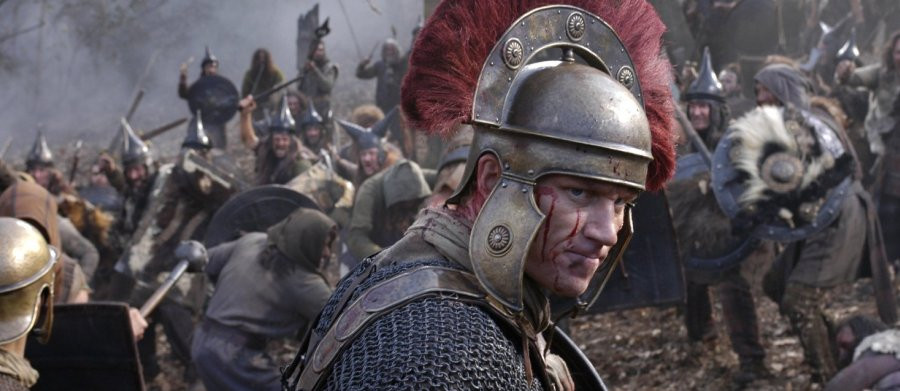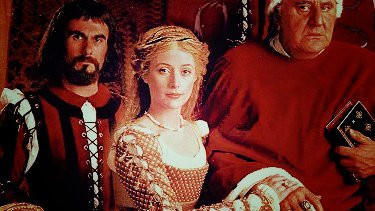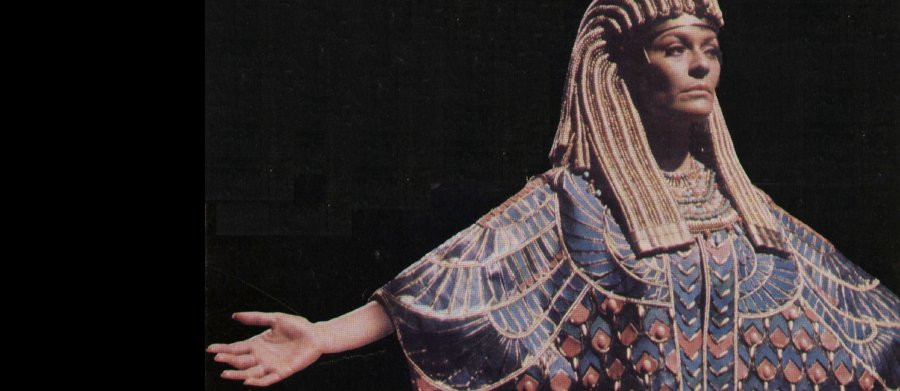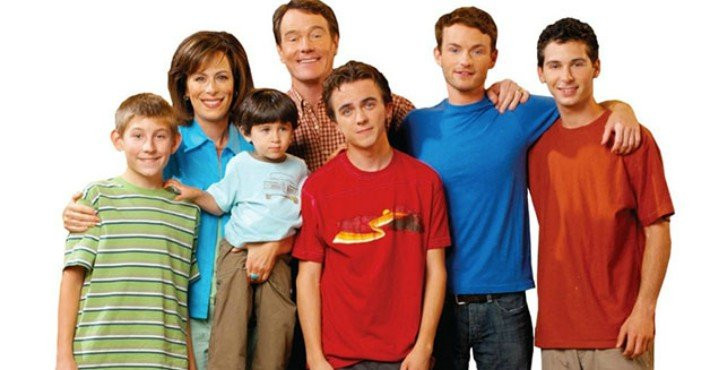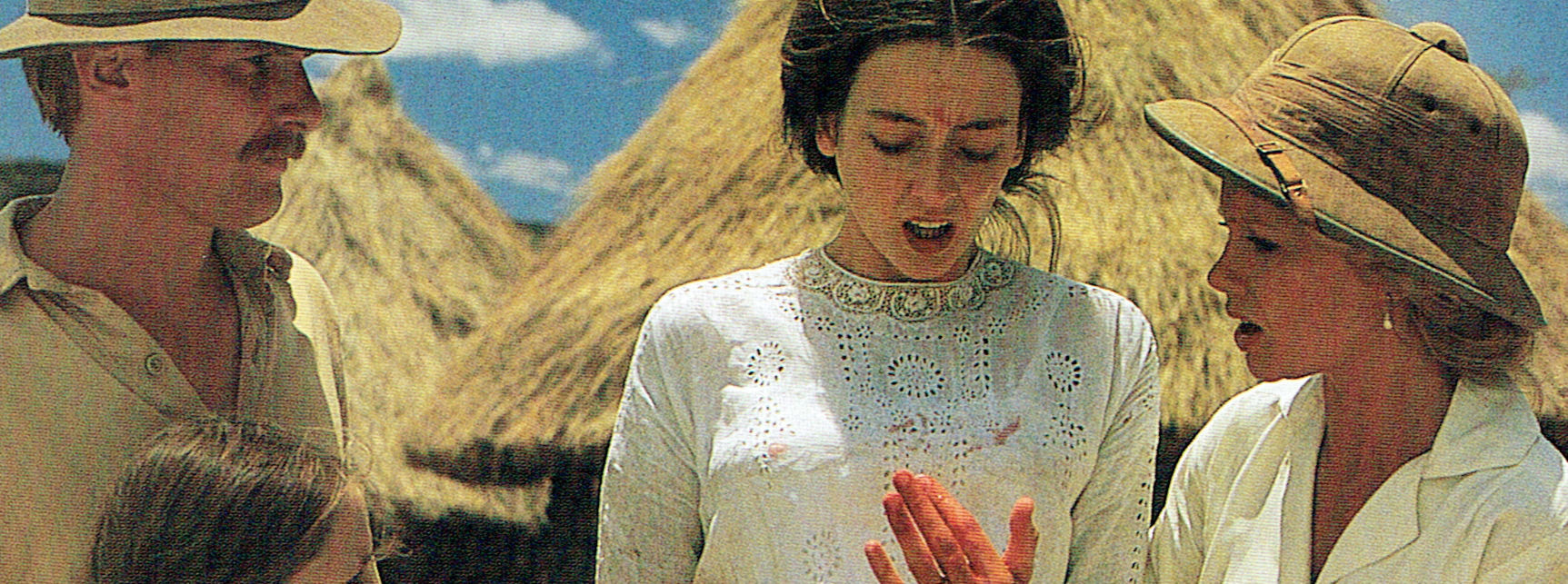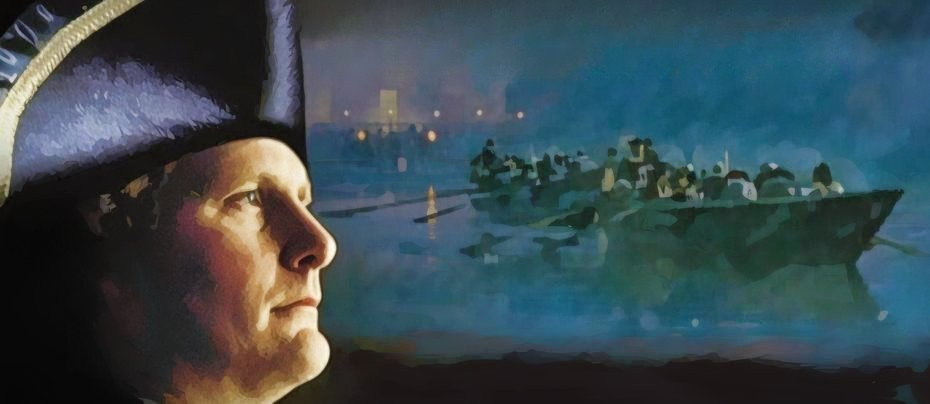
The Crossing
2000 - United States"The enemy has twenty thousand. And I swear, I will not eat, nor will I sleep, until I have put that river between him and us."
Review by John Winterson Richards
A reverential dramatisation of Washington's famous crossing of the Delaware River, and the consequent Battle of Trenton on Boxing Day, 1776, The Crossing was adapted from his novel of the same name by Howard Fast, who was in his eighties at the time. This is unusual in recent scriptwriting, but an exception was made in Fast's case. He was famous primarily for another of his novels, written in the early Fifties when he was an active member of the Communist Party, which was later one of the bases for the classic Stanley Kubrick film Spartacus starring Kirk Douglas in the title role. If there are hints of his politics in The Crossing, at least he was clever about them: whatever else may be said about him, no one ever denied his skill as a writer.
His script is accurate in its main points. The Declaration of Independence by the Continental Congress of the North American Colonies on the 4th of July, 1776, was followed by a series of defeats that threatened to destroy its principal field army, commanded by George Washington, and with it the newly proclaimed Republic. The poorly trained and equipped Colonial militiamen were simply no match for the British regulars. Contrary to what Hollywood often likes to imply, most such conflicts between amateurs and professionals do not last long, and the American experiment would today be remembered, if it was remembered at all, as just one more failed rebellion had it not been for what Washington did next.
He crossed the Delaware not once but four times. The first was running to get away from the British, who chased him all the way from Long Island, New York, through New Jersey to Pennsylvania, reducing his army to about a tenth of its former size. The second was essentially a raid on Trenton, New Jersey, followed by a rapid recrossing back to Pennsylvania to avoid pursuit. The success of this raid emboldened him to cross a fourth time, force the British to fall back a bit, and remain in New Jersey for the time being. Under the circumstances this counted as a major victory.
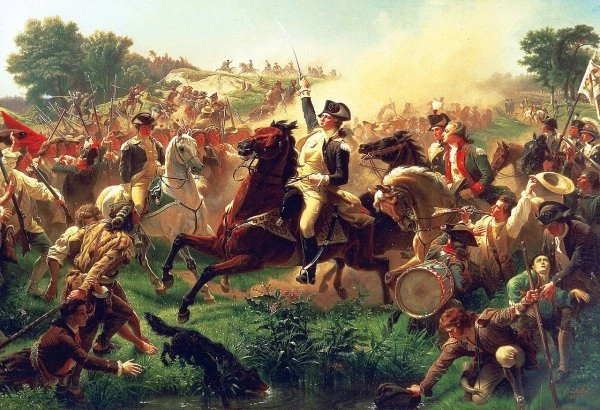
It is the second crossing, the one prior to the surprise attack on Trenton, that everyone remembers, thanks mainly to the famous painting by the German artist Emanuel Leutze (the original of which was destroyed, ironically, by American bombing in World War Two) and that gives The Crossing its title.
Fast's script is very good at conveying exactly how insane Washington's plan really was. So many things could easily have gone wrong, and if the British had been prepared to meet him his entire command would have been caught with its back to the river and the War would have been over in less than an hour. Indeed, since the script views everything from the American perspective, it leaves out the astonishing historical fact that the British received good intelligence about the intended surprise attack - and ignored it completely. As things turned out, it was the British, or rather a brigade of their Hessian auxiliaries, who were caught off guard and defeated in a matter of minutes.
This revived the rebel cause and reignited the War. Despite us all knowing the eventual result, the script still maintains tension by showing how it all could have been very different - and why Washington felt obliged to abandon his usual caution and risk everything on such a lunatic scheme. He had little choice: his army was falling apart. Many of his surviving men were crippled by cold, hunger, disease, and wounds. The short term enlistments of a large proportion were due to run out in a few days. He needed a victory to restore morale and keep a meaningful force in the field.
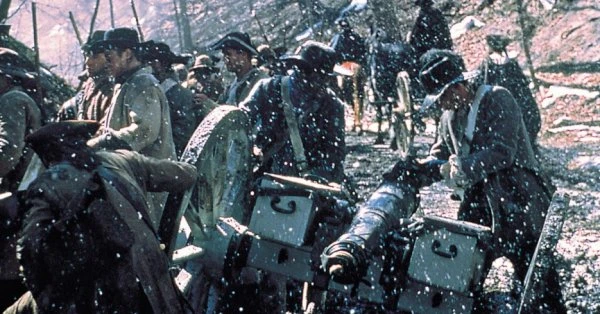
The production evokes the general despair very effectively. The photography emphasises the bleakness of the Winter - the more so since filming took place in Canada which is even harsher than Pennsylvania late in the year. The fact that the budget ran to a limited number of extras might have been to its advantage in this regard. We get a fine sense of a small band of literally freezing, hungry, and sick men facing an apparently unstoppable military machine.
Here it has to be noted that the script does take some liberties with history in order to stress the fact that Washington was at a disadvantage. In particular, it follows traditional American mythology in presenting the Hessians as battle hardened "mercenaries" when the truth is that most of the rank and file were levies hired out to the British by the princes of petty German states because the British themselves had a manpower problem. Far from being an elite, the Hessians were generally not as effective as the British regulars in battle. As a note before the end credits points out, many of those captured chose to remain in America after the War, showing how they were reluctant opponents.
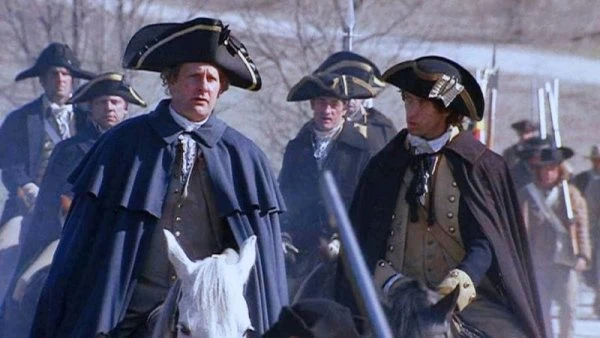
It also gets a number of minor details wrong. It is not true that the Continentals suffered no casualties at Trenton: there were no combat fatalities but a future President of the United States, James Monroe, was among the wounded. While Alexander Hamilton, Washington's future Secretary of the Treasury, and later the protagonist of an eponymous Broadway musical, was present at Trenton, purists like to point out that his appointment as Washington's ADC came after he distinguished himself as an artillery officer during the Battle. The script is very unfair to Henry Knox, Washington's future Secretary of War, noting, accurately, that he was a bookseller famous for his unmilitary girth while ignoring the fact that he was the logistical brains behind the whole operation. No mention is made of the fact that the man who suggested the plan to Washington in the first place was apparently the problematic Benedict Arnold.
Horatio Gates, another problematic character in the official mythology, was not relieved of his command as shown but took a diplomatic sick leave just before what he considered a doomed operation. Having previously served with distinction as a regular officer, he had some justification for his claim that he was better qualified than Washington for the Supreme Command - or he did until Washington proved himself at Trenton. Gates had already made a major contribution to organising the Continental Army as Adjutant General, and it was Gates and Arnold, not Washington, who, at Saratoga the following year, won the only decisive all-American victory over the British. Ironically, Gates' military career ended later when, at Camden, he made the mistake of which he accuses Washington in The Crossing by overestimating the ability of poorly trained militia to stand against regulars. Gates is played by Nigel Bennett, a Canadian based actor best known as a superb villain in Lexx, so is meant to be unsympathetic. Yet it is worth noting that Gates is the only one of the senior generals who fought for American "freedom" who emancipated all his slaves in his own lifetime (Washington eventually did so only in his will).
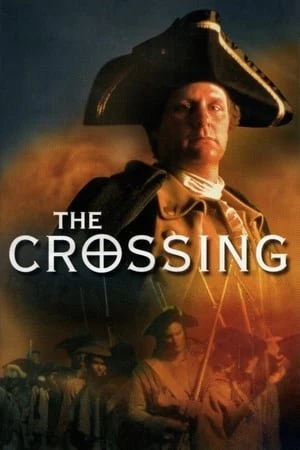
Jeff Daniels looks the part of Washington but the script forces him to be a lot chummier than the original, who was defined by his gentlemanly reserve. Roger Rees plays his friend General Mercer and Sebastian Roche (Roar) the surly commander of the surly fishermen who do all the rowing. If this casting seems a bit eclectic, it is nevertheless effective, making the historically accurate point that the Continentals were a diverse bunch who did not always get on with each other. The greatest tribute to Washington's leadership is that he won in spite of some of the people on his own side rather than because of them, a fact The Crossing conveys effectively.
Acknowledgments are due to an interesting video on the history behind this film by "UnMarked History" on YouTube, even if it should also be noted that your reviewer had already come to some of the same conclusions independently and disagrees strongly with others.
Seen this show? How do you rate it?
Seen this show? How do you rate it?
Published on November 26th, 2024. Written by John Winterson Richards for Television Heaven.


